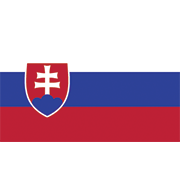Fiscal subject related
The Financial Administration of Slovakia has partnered with the Slovak University of Technology (STU) in Bratislava to develop a state-controlled QR payment application. The goal is to reduce transaction costs for merchants and enhance payment autonomy. Unlike conventional cashless payment systems, this initiative will exclude commercial third-party involvement, ensuring a fully state-managed solution.
The authorities state the introduction of QR payments is expected to bring substantial financial benefits to merchants. (Small businesses could save €400 per year, restaurants may cut costs by €3,500 annually, hotels could benefit from €5,500 in savings, and large retail chains stand to save millions of euros by reducing card transaction fees.)
While the QR payment system will not be mandatory for Slovak citizens, merchants will probably be obliged to provide the option for cashless transactions using QR codes. This ensures wider accessibility and modernization of payment processing across industries.
The new QR payment system is not only designed for financial efficiency but also plays a crucial role in combatting tax evasion. Through real-time payment notifications, authorities can improve tax collection and transparency in business transactions. More regulations, information, and obligations will be introduced.
Other news from Slovakia
Slovakia confirmed mandatory E-Invoicing for businesses starting 2027 and other tax reforms.
 Slovakia
Author: Nikolina Basić
Slovakia
Author: Nikolina Basić
Slovakia has approved a draft bill requiring VAT-registered businesses to adopt mandatory e-invoicing and real-time reporting from 2027, with cross-border transactions included by 2030. The reforms also introduce updated VAT registration rules, mandatory cashless payment options, and investment support measures, aligning the country with the EU’s ViDA initiative. The Slovak Republic approved a dra... Read more



Control action "Return 2" in Slovakia
 Slovakia
Author: Nikolina Basić
Slovakia
Author: Nikolina Basić
The Slovak Financial Administration has relaunched its inspection campaign “Return 2” to crack down on businesses that repeatedly fail to record sales, with a focus on repeat offenders, first-time inspections, and fraudulent cash register systems. The campaign brings higher fines of up to €30,000, temporary business closures, and potential licence revocations, aiming to protect fair competition an... Read more



Slovakia Opens Public Consultation on Mandatory E-Invoicing Ahead of 2027 Rollout
 Slovakia
Author: Nikolina Basić
Slovakia
Author: Nikolina Basić
Slovakia has launched a public consultation on amendments to the VAT Act introducing mandatory structured e-invoicing and real-time reporting, with the first reforms starting January 1, 2026, and full domestic rollout by January 1, 2027. The system, based on the EU’s ViDA Directive and the Peppol model, will later extend to cross-border transactions in 2030, replacing VAT control statements and st... Read more



Slovakia introduces E-Invoicing and Tax Reporting overhaul ahead of the EU ViDA rollout.
 Slovakia
Author: Nikolina Basić
Slovakia
Author: Nikolina Basić
Slovakia has opened a public consultation on draft legislation to mandate structured e-invoicing and near real-time VAT reporting from January 2027, aligning with the EU’s ViDA initiative. The phased reform will adopt a 5-corner Peppol model and culminate in the full replacement of Control Statements and EC Sales Lists by mid-2030, supported by a unified tax engine to streamline compliance. ... Read more



Slovakia Launches "Hot Summer 4" Tax inspection campaign
 Slovakia
Author: Nikolina Basić
Slovakia
Author: Nikolina Basić
Slovakia’s Financial Administration launched the “Hot Summer 4” campaign to promote proper sales registration in the eKasa system, focusing on education and preventive checks in seasonal and high-risk sectors. With the motto “Better education than a fine,” the initiative encourages both business compliance and public involvement to reduce VAT losses and support fair market practices. The Slovak Fi... Read more



Cashless Payment Revolution Coming in Slovakia
 Slovakia
Author: Ema Stamenković
Slovakia
Author: Ema Stamenković
Slovakia is launching a new QR code-based instant payment system that allows customers to pay directly via mobile banking, reducing reliance on card terminals and cutting merchant costs. Developed through a state-university partnership, the system enhances transparency and supports tax compliance by instantly registering transactions at the point of sale. Read more
Subscribe to get access to the latest news, documents, webinars and educations.
Already subscriber? Login

